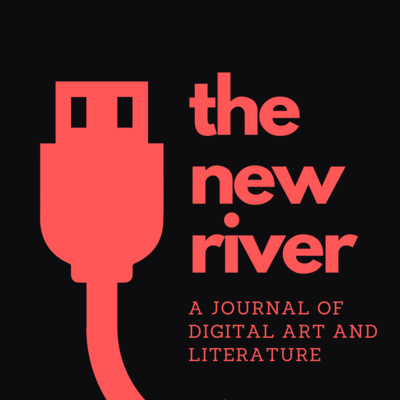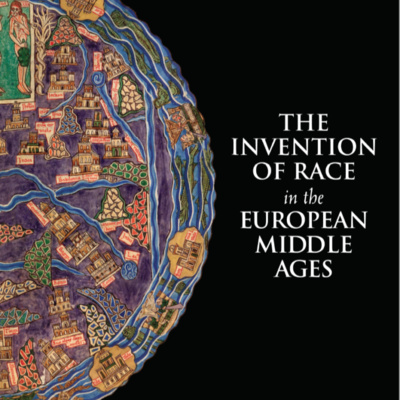
Vox Humanities
By Virginia Tech Center for Humanities

Vox HumanitiesApr 08, 2022

Premesh Lalu
Professor Premesh Lalu is a distinguished scholar of the humanities and the Director of the Centre for Humanities Research at the University of the Western Cape in South Africa.
With decades of experience in the field, Professor Lalu is widely recognized as a leading voice in the study of African intellectual and cultural history. His research focuses on the intersections of race, politics, and identity in South Africa and the broader African continent, with a particular emphasis on the role of the humanities in shaping our understanding of these complex issues.
We recorded our conversation with Professor Lalu in March of 2023.

Philip Butler
Philip Butler is an Assistant Professor of Theology and Posthuman Artificial Intelligence Systems at Iliff School of Theology. He is the founder of the Seekr Project, a distinctly Black conversational artificial intelligence with mental health capacities. His work primarily focuses on the intersection of neuroscience, technology, spirituality and race. He is the author of Critical Black Futures (2021) and Black Transhuman Liberation Theology: Spirituality and Technology (2019).

Tom Ewing
For this episode, we spoke with Dr. Tom Ewing, Associate Dean for Graduate Studies and Research in Virginia Tech’s College of Liberal Arts and Human Sciences. He is an expert in Russian history, data and society, and modern medical history. Among his publications are: The Teachers of Stalinism, Education & the Great Depression, Separate Schools: Gender, Policy, and Practice in the Postwar Soviet Union. He has also co-edited, Viral Networks: Connecting Digital Humanities and Medical History, which was published by Virginia Tech Publishing in 2018.
His current research project explores the transmission of information about the co-called “Russian Influenza” (1889-1890) using data and digital humanities approaches to medical history.
Professor Ewing also coordinates the Data in Social Context program, which sustains an interdisciplinary approach of data analytics, computational skills, and critical thinking in the humanities and social sciences.
He has received funding from the National Endowment for the Humanities to run workshops on the 1918 Spanish Influenza and on Images and Texts in Medical History.
We spoke with Professor Tom Ewing in the spring of 2022.

Mxolisi Mavi
In January 2022, Sylvester Johnson spoke with Dr. Mxolisi Victor Mavi, a veteran activist of South Africa’s anti-apartheid movement and expert in the study of theology, race, politics, and global liberation movements. Dr. Mavi is a collaborator with the “Future Humans, Human Futures” project on religion, technology, and ethics that has been generously supported by the Henry Luce Foundation. They discussed Dr. Mavi’s advocacy for social justice in South Africa during both the period of formal racial apartheid and more recently under the system of multi-racial democracy that has been shaped by drastic inequality. Their conversation explores the global dimensions of economic change that technology innovation and the “digital divide” have created as major challenges that must be addressed to shape a more equitable future for the twenty-first century.

The New River
In December 2021, Sylvester Johnson spoke with Ed Falco and Amanda Hodes about the creation and development of New River, a journal of digital writing and art currently housed at Virginia Tech. Ed Falco founded the journal in collaboration with Len Hatfield in 1996 and describes the origins of the journal within the context of emerging digital humanities technologies. Amanda Hodes, who served as outreach coordinator at the time of this recording, explains the various ways the journal has positively shaped writing, art, and creativity since its founding.

Laura Belmonte and Shaila Mehra
During June of 2021, Sylvester Johnson spoke with Laura Belmonte, Dean of Virginia Tech’s College of Liberal Arts and Human Sciences about her book The International LGBT Rights Movement: A History (2020). They were joined by Shaila Mehra, the college’s Assistant Dean for Diversity, Equity, and Inclusion who is a scholar of Black feminist theory. Belmonte, whose research examines international relations, gender and sexuality, and global politics, discusses the impetus for her research and the significance of a global approach to understanding the struggle for LGBTQ rights.

John Lardas Modern
Professor John Modern, a scholar of religion and secularism, has written Neuromatic, an interdisciplinary study of religion and the brain that explores how religion and brain science have influenced each other as humans have sought to understand cognition, reality, and human identity. Professor Modern spoke with Sylvester Johnson for this episode in 2021, shortly before the book's release. They discussed some of the book's key insights and the broader implications for understanding the possibilities and limitations of religious and scientific efforts to understand humanity.

Matthew Salesses & Silas Cassinelli
Matthew Salesses is the author of the bestsellers The Hundred-Year Flood, an Adoptive Families Best Book of 2015 and a Best Book of the season at Buzzfeed, Refinery29, and Gawker, among others, and Craft in the Real World, an Esquire Best Book of the 2021, which explores alternative models of craft and the writing workshop, especially for marginalized writers. His latest novel is the PEN/Faulkner Finalist Disappear Doppelgänger Disappear, a Thrillist.com Best Book of 2020.
Silas Cassinelli is an assistant professor in the Department of English. He teaches classes in Asian American studies, Ethnic American literatures, and gender and women’s studies. His research focuses on the Korean diaspora, transnational adoption studies, and queer kinship.
Both joined host Sylvester Johnson in a small panel discussion about their race, culture, literature and their shared experience as trans-national Korean-American adoptees.

Lucinda Roy
Novelist, poet, and memoirist Lucinda Roy’s latest book is the speculative novel THE FREEDOM RACE (Tor/Macmillan), Volume I of THE DREAMBIRD CHRONICLES trilogy. Among her previous books are the memoir NO RIGHT TO REMAIN SILENT: What We’ve Learned from the Tragedy at Virginia Tech, the novel LADY MOSES (a Barnes and Noble Discover Great New Writers selection) and the poetry collection THE HUMMING BIRDS, winner of the Eighth Mountain Poetry Prize. A Distinguished Professor at Virginia Tech, she gives keynotes and presentations around the country on creative writing, race and racism, diversity, and campus safety. Her commentaries and poetry have been published in numerous newspapers and journals, including USA Today, the Guardian, the Chronicle of Higher Education, and the New York Times. Her passions include writing, teaching, oil painting, and (when all else fails) laughing till it hurts. Lucinda Roy joined Sylvester Johnson in October of 2021 to discuss her writing, her art, the power of stories, and the way in which imagination can be an antidote to despair.

Aaron Brantly & The Tech4Humanity Lab
In this episode, Sylvester Johnson speaks with Aaron F. Brantly, an assistant professor of political science at Virginia Tech about his leadership of the Tech4Humanity Lab at Virginia Tech. A centerpiece of the Tech4 Humanity initiative, the lab is a trans-disciplinary space for focusing on the impact of technology on the human condition. Dr. Brantly has worked on issues related to cybersecurity from multiple angles, including human rights and development, intelligence and national security, and military cybersecurity. His interests span the political science and computer science divide. The interview was recorded in November of 2020.

Geraldine Heng and Matthew Gabriele
Sylvester Johnson hosts a small round table discussion on race in the European Middle Ages with Geraldine Heng and Matthew Gabriele.
Geraldine Heng is Professor of English and Comparative Literature, with a joint appointment in Middle Eastern studies and Women’s studies. She holds the Perceval Professorship, created by anonymous donors to support her career. She is also Founder and Director of the Global Middle Ages Projects (G-MAP): www.globalmiddleages.org
Her first book, Empire of Magic: Medieval Romance and the Politics of Cultural Fantasy (Columbia University Press, 2003, 2004, 2012; 533 pp.) traces the development of a medieval literary genre—European romance, and, in particular, the King Arthur legend—in response to the traumas of the crusades and crusading history, and Europe’s myriad encounters with the East.
Heng’s second book, The Invention of Race in the European Middle Ages (Cambridge University press, 2018; 504 pp. in a larger, 10 x 7 format) argues that the medieval period was not a pre-political, pre-racial era, and that religion then (and now)—as much as science, in the high-modern era of “scientific racism”—was selectively deployed to identify differences among humans that were essentialized as absolute and fundamental, so as to distribute positions and powers differentially to human groups, in practices that we would today call acts of race. Invention of Race won the 2019 PROSE prize in Global History, and was listed among History Today's best books of 2018.
Matthew Gabriele is a professor of medieval studies and the chair of the Department of Religion and Culture at Virginia Tech. He has published numerous academic articles and several books, including An Empire of Memory: The Legend of Charlemagne, the Franks, and Jerusalem before the First Crusade, which received the Southeastern Medieval Association’s Best First Book in 2013.
Dr. Gabriele is a regular contributor to Forbes.com; his public writing has appeared in such places as The Washington Post, The Guardian, The Daily Beast, Slate, and The Roanoke Times; and interviews with him have aired locally, nationally, and internationally.

E. Patrick Johnson
In the summer of 2020, Sylvester Johnson spoke with E. Patrick Johnson about his award-winning film Making Sweet Tea.
E. Patrick Johnson is the Dean of the School of Communication at Northwestern University, where he holds the Carlos Montezuma chair as Professor of Performance Studies and African American Studies.
He is a scholar and an artist who performs nationally and internationally and has published widely in the areas of race, gender, sexuality and performance. Johnson is a prolific performer and scholar, and an inspiring teacher, whose research and artistry has greatly impacted African American studies, Performance studies, and Gender and Sexuality studies. He has written two award-winning books, Appropriating Blackness: Performance and the Politics of Authenticity (Duke UP, 2003), which won the Lilla A. Heston Award, the Errol Hill Book Award, and was a finalist for the Hurston/Wright Legacy Award and Sweet Tea: Black Gay Men of the South—An Oral History (University of North Carolina UP, 2008), which was recognized as a Stonewall Book Award Honor Book by the LGBT Round Table of the American Library Association.
He co-edited (with Mae G. Henderson) Black Queer Studies—A Critical Anthology (Duke UP, 2005). He is also the editor of Cultural Struggles: Performance, Ethnography, Praxis by Dwight Conquergood (Michigan UP, 2013) and co-editor (with Ramón Rivera-Servera) of solo/black/woman: scripts, interviews, and essays (Northwestern UP, 2013). Johnson edited No Tea, No Shade: New Writings in Black Queer Studies (Duke UP, 2016) and he also co-edited Blacktino Queer Performance (with Ramón Rivera-Servera (Duke UP, 2016). He recently published the creative nonfiction text titled Honeypot: Black Southern Women Who Love Women. He is also writing a companion volume (?) Black. Queer. Southern. Women. — An Oral History.

Tech for Humanity: The T.E.A.R. Mask
In late 2020, Sylvester Johnson sat down with Alex Munro, Claudia Hasenfang, and Cole Powell, three members of the award winning design team of Virginia Tech students and recent alumni. The team is responsible for the creation of the T.E.A.R. Mask, a prototype pocket-sized anti-tear gas respirator that protects the eyes, nose, and mouth from the harmful effects of tear gas. Its design is compact enough fit in a pocket or purse, and incorporates a simple operation of use that can be deployed quickly and safely. As the designers highlight, the T.E.A.R. Mask exemplifies the human centered technological design practices that animate the university's Tech for Humanity initiative.